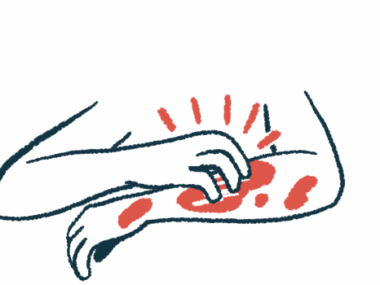Reimbursement for Givlaari – With Price Drop – Urged for Canada
Written by |

The Canadian Agency for Drugs and Technology in Health, called CADTH, has recommended that Givlaari (givosiran) be reimbursed by public plans — if certain conditions are met — when it’s used to treat adults with acute hepatic porphyria (AHP).
One condition, according to CADTH, is that the therapy’s cost should be reduced by more than half.
CADTH is an independent body that relays evidence to Canada’s healthcare decision-makers to help them make informed judgments about treatments and medical devices.
Givlaari is approved in Canada as an under-the-skin (subcutaneous) treatment for AHP in adults. It also has been approved for the same indication in the U.S. and Europe.
Now, its developer, Alnylam Pharmaceuticals, is seeking the therapy’s full reimbursement under the public health plans in Canada.
The new recommendation by CADTH applies to cases in which Givlaari is being prescribed by a clinician experienced in the management of AHP, and when the medication is not being used as part of a preventive therapy in combination with hemin.
According to CADTH, in order to be reimbursable, Givlaari’s cost should be reduced by at least 57% for the medication to be considered cost-effective.
Reimbursement should be renewed after 12 months if there is a reduction in the annualized attack rate, the CADTH said. Also, these recommendations apply to adults with AHP who have been prescribed Givlaari after experiencing four or more attacks that required hospitalization, a visit to the emergency room, or into-the-vein (intravenous) treatment with hemin in the previous year.
“We are proud of what’s been accomplished and are working towards full national reimbursement so that patients across Canada can have access to a treatment that will improve their overall health and quality of life,” Colleen Coxson, country general manager of Alnylam, which markets Givlaari, said in a press release.
AHP is caused by the lack of certain enzymes that are required for the production of heme — a key molecule that is required for oxygen transport — in the liver. The disorder results in the buildup, in the liver, of toxic porphyrins.
Givlaari works by disrupting the process enabling the toxic accumulation of these heme intermediate molecules inside cells. It specifically does this by interfering with the production of an enzyme called ALAS1, which is overactive in AHP patients.
“The Health Canada market authorization of Givlaari provides new hope for those living with AHP,” Coxson said. “For the first time, all patients have a treatment option specifically targeted for this rare and serious disease.”
CADTH’s recommendation was supported by data from the Phase 3 ENVISION trial (NCT03338816), which randomly assigned 94 AHP patients to receive either Givlaari (2.5 mg/kg) or a placebo, once a month, for six months. All had active disease, with at least two porphyria attacks within the last six months.
The results showed that Givlaari was able to reduce the mean annual AHP attack rate by 74% compared with the placebo. Additionally, the medication was capable of lowering heme intermediate levels, daily pain scores, and opioid use.
A two-year interim analysis of the trial’s extension study, in which all patients continued or started treatment with Givlaari, showed these benefits were maintained long-term. Specifically, 83% of patients who were continuously treated with Givlaari and 76% of those who moved from placebo to the medication remained attack-free.
“Patients suffering from this very rare, genetic disease often require urgent healthcare assistance and hospitalization, due to serious symptoms such as porphyria attacks which can involve severe abdominal pain, vomiting, breathing problems, seizures, and can lead to long term complications like chronic pain, chronic kidney failure and liver damage,” said Colin Van Zoost, MD, assistant professor of medicine at Dalhousie University, in Canada.
“Not knowing when the next attack will [occur] can cause severe anxiety for many patients, making engagement in day-to-day life, work and social situations difficult. Givlaari gives us a treatment option that can help patients avoid ever having another attack, allowing them to re-engage with society and live as close to a normal life as possible,” Van Zoost added.







